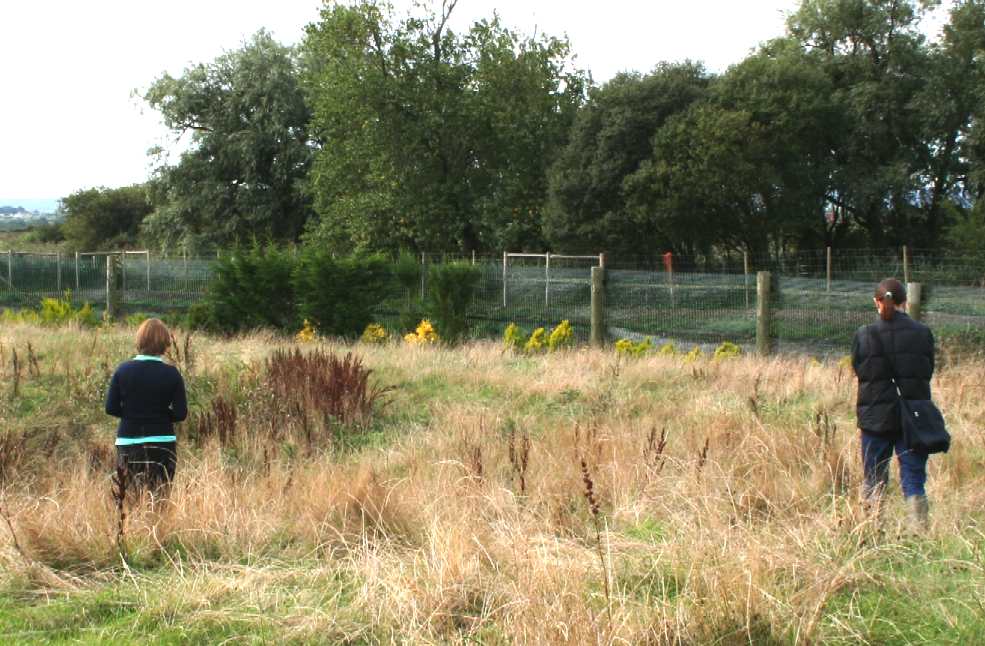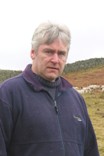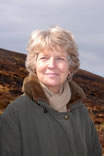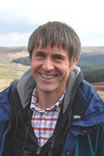|
NATURAL ENGLAND - SUE BEALE
|
||||||||||||||||||||||||||||||||||||||||||||||||||||||||||||||||||||||||||||||||||
|
Sue
Beale - On a site visit on Friday the 20th September 2013, Ms Beale was
willing to communicate about some issues, but not about fences on other farmers land, and the flooding that has caused
most of the problems on this site, about which Natural England have know
since 2009, but taken no enforcement action against those responsible.
Rather, they have targeted another landowner who has no control over the
pumping station that has not been managed since the retirement many years
ago of the original operator.
NATURAL ENGLAND BOARD
The NE Board has corporate responsibility for ensuring that Natural England fulfils the aims and objectives set by the Secretary of State. The main roles of the Board are to establish Natural Englandís strategy, approve direction and review performance of the organisation. As a local and national authority, they are bound by Section 6 of the Human Rights Act 1998, being that they must not violate any of the Articles of the European Convention. In particular they must act without discrimination and fairly, such as to comply with Articles 14 and 6.
There have though been cases where bias has been a feature of case handling. We are following a live case at the moment, being handled by Cath Jackson and Sue Beale, where permissions had been agreed and a landowner at great financial cost made adjustments, but then having agreed those adjustments would be acceptable, Natural England then sought to prosecute the landowner, even where he had permission from the local council for certain works, and there was no danger to any wildlife being caused by other works, which were to protect grazing animals, that otherwise might escape and either drown, or become a danger to nearby road users.
The site in question lies smack in the middle of Radar Farm and Bunker Hill, otherwise known as RAF Wartling. Further along Wartling Road, the earlier RAF Pevensey is also on the Pevensey Marshes. Prior to initiating proceedings, it has transpired that no archaeological survey of what is now Lion Farm, was undertaken, though it is common knowledge that Natural England regularly work with the likes of English Heritage, when considering how to handle sites with a known heritage.
Sue Beale - "Oh look a blade of grass."
DISCRIMINATION = MISFEASANCE IN PUBLIC OFFICE
Natural England have refused to indemnify the landowner, should any of their requirements cause him loss. While requiring the landowner, to, in effect, cease farming, Natural England have made no offer of compensation under the Agri-Environment Scheme. These Schemes are publicly-funded and provide payments to farmers who, in return, agree to manage their land for the benefit of the environment.
Where Natural England have not even advised the landowner of such schemes, and refused to indemnify in case of livestock escaping, etc, we suspect discrimination is the root cause of their behaviour. The identity of the landowner is protected, but an operative has visited the site in question and provided us with verifiable facts in the form of photographic evidence, as to the excellent condition of the land and significant improvements, bound to increase the natural habitats of local fauna. The case continues ......
Emergency fencing to protect livestock against flooding and the ramifications of flood water that may be contaminated. The Pevensey Levels have not been surveyed since at least 2009 and it is unclear as to what that survey revealed. We tried to obtain copy of the data for this area and were told:-
EMAIL REPLY TO REQUEST FOR DATA 19-9-2013
This is an automatically generated message from the NBN Gateway - DO NOT REPLY
Thank
you for your data request via the NBN Gateway. We're unable to allow
access to all species data for the whole of Sussex to you but will be more
than happy to provide you with desktop biodiversity reports for the sites
that you need data for.
The burning question is, do any members of staff or the Board have any financial interests in this area? We will be writing to Natural England seeking assurances and clarification if necessary.
Mr Poul Christensen CBE - Chair - Date appointed: December 2006 Date appointed as Chair: 3 December 2009 - Appointed until: 31 December 2013
Poul was appointed Chair of Natural England on 3 December 2009. He was Deputy Chair of Natural England from 2006 and served as Acting Chair following the death of Sir Martin Doughty in March 2009.
He is a director of a successful family dairy farming business at Kingston Hill Farm, in Oxfordshire. He has a long track record of integrating conservation with the demands of modern farming.
Throughout his career Poul has taken a prominent role leading the farming sector through changing and challenging times. He is the joint founder of the Tenant Farmersí Association, established in 1981 to provide a voice for tenant farmers. He was previously Chairman of Milk Marque in the late 1990s, steering the dairy sector through a period of significant change, Chair of the Rural Development Service until 2006, overseeing the launch of modern Environmental Stewardship schemes, and a member of the Defra Management Board before taking up the appointment of Chair at Natural England.
He is currently a Director of Agricultural Central Trading Limited, a farmer supply cooperative and is a Board member of the UKís Joint Nature Conservation Committee. Poul was elected as President Elect of the National Federation Of Young Farmers' Clubs, in April 2012, and in the same month was advanced as a Fellow of the Royal Agricultural Societies (FRAgS). He received the Commander of the Order of the British Empire in the Queen's Birthday Honours List in 1991 for services to agriculture and the commercial development of the Agricultural Development Advisory Service (ADAS).
Professor David Hill - Deputy Chair Appointed: 2 May 2006 - Until: 31 March 2014
David was appointed Deputy Chair in February 2011 and has been a member of Natural Englandís Board since 2 May 2006.
His responsibilities include: Northumberland and Yorkshire Dales National Parks, Joint Nature Conservation Committee (as Board member), Natural Englandís Science Advisory Committee and Audit and Risk Committee, and the Natural England, Environment Agency and Forestry Commission Joint Sub-group.
David has significant experience in consultancy, nature conservation and company business strategy. He runs an ecological consultancy company, is Chairman of The Environment Bank Ltd and was previously Chief Scientific Adviser to RPS Group plc. Over the past three years he has been actively involved in promoting environmental markets to provide new and innovative ways of mitigating for impacts on ecosystem services arising from development, industry and corporate businesses.
David is a Fellow and past President of the Institute of Ecology and Environmental Management. He has published extensively on ecological issues over the past 25 years. David is a member of the Governmentís Ecosystem Markets Taskforce. David is a member of the RSPB, BTO, Norfolk Wildlife Trust and a life member of the National Trust.
Mr William Cockbain Appointed: 1 October 2011 - Until: 30 September 2014
Responsibilities from 1 October 2011 include: land management, agriculture and the uplands, Lake District, Peak District and North York Moors National Parks.
William Cockbain farms a large hill farm in the Lake District as part of a family partnership. He was NFU National Uplands spokesman from 2004 until March 2012 when he stood down after 8 years.
In 2006 he was appointed as Defraís North West Sustainable Food and Farming Champion, a position held until the end of March 2011. He chairs the new Rural and Farming Networks, for Cumbria, North and East Lancashire, and was made an Associate of the Royal Agricultural Societies for England, Scotland, Wales and Northern Ireland in 2008 for services to hill farming.
Ms Catherine Graham-Harrison OBE Appointed: 1 January 2009 - Until: 31 December 2014
Responsibilities from 30 September 2011 include: Protected Landscapes, with special responsibility for the South Downs and New Forest National Parks, and transport and development. Member of the Audit and Risk Committee until 30 September 2011.
Until 2011, Catherine worked as a Management Consultant, mainly in the not for profit sector, focusing on philanthropy; strategic planning; governance and organisational development.
Prior to that, she was a Vice President of Citibank and then Chief Executive of the Paul Hamlyn Foundation. She has held a large number of non executive positions over the past 20 years including being on the board of the Heritage Lottery Fund and a trustee of the Joseph Rowntree Foundation.
Catherine has been Chair of the National Forest Company since April 2011 and was appointed Chair of the National Trust Architecture Panel with effect from 1 February 2011.
Dr Joe Horwood Appointed: 1 October 2009 - Until: 30 September 2015
Responsibilities include: Lead Board member for marine and the Broads Authority. Member of the Audit and Risk Committee (until 30 September 2011), Natural England Science Advisory Committee, Marine Protected Areas sub-group on the Joint Nature Conservation Committee and the Natural England, Environment Agency and Forestry Commission Joint Sub-group (ceased July 2012).
Joe Horwood has a background in mathematics and zoology applied in marine ecology and resource management. Former Chief Science Advisor at the Centre for Environment, Fisheries and Aquaculture Science (CEFAS), but retaining a role as Non-Executive Director and Chair of CEFASí Science Advisory Committee. He has been a member of the Board of the International Council for Exploration of the Sea (ICES) since 1998 and was President of ICES from 2006 to 2009. He was also on the Board of the Marine Biological Association from 1998 to 2001.
He has served on the science advisory committees of the International Whaling Commission, ICES and the EC, and on the UKís Marine Science Co-ordination Committee. He is a Fellow of the Royal Statistical Society, and of the Institute of Mathematics and its Applications, and a member of the British Ecological Society, the Challenger Society and the Suffolk Wildlife Trust. He has published on a variety of marine issues including whales, fisheries and marine protected areas.
Mr Doug Hulyer Appointed: 2 May 2006 (reappointed 1 June 2011) - Until: 31 May 2014
Responsibilities include: Exmoor and Dartmoor National Parks, access and engagement, management for biodiversity, and climate change adaptation. Member of the Natural England, Environment Agency and Forestry Commission joint sub-group.
Doug is an independent advisor for the heritage and natural environment sector. He was previously the Director of Conservation, Programmes and Developments for the Wildfowl & Wetlands Trust, and prior to moving to Slimbridge in 1984, one of the first Education Officers in the Wildlife Trust network.
Doug is a committed environmentalist, environmental educator and conservationist with over 30 yearís professional experience. He is a Trustee of the National Heritage Memorial Fund/Heritage Lottery Fund, a member of HLFís South West Committee, and Chair of the NHMF Audit Committee. Doug is currently Vice-President of the Surrey Wildlife Trust, a member of the Learning & Visitor Experience Panel of the National Trust, and a Fellow of the Society of Biology. He is a Trustee of Earth Trust, Oxfordshire (HLS received) and Woodchester Mansion Trust (within SSSI).
He also holds memberships in Gloucestershire Wildlife Trust, English Heritage, Wildfowl & Wetland Trust, The National Trust, Freshwater Biological Association, and the Institute of Directors, The Chartered Institute of Water and Environmental Management, Royal Horticultural Society, IUCN Ė Commission on Education and Communication and the National Trust.
In June 2008, Doug ceased his position as Chairman of the Wetland Vision project. Doug was a Council Member for English Nature between 2002-2006, before taking up the appointment of Board Member for Natural England.
Professor David Macdonald Appointed: 2 May 2006 (reappointed 1 June 2011) - Until: 30 September 2014
Responsibilities include: Chair of Natural Englandís Science Advisory Committee and biodiversity (land use issues). David is the Professor of Wildlife Conservation and the Director (and founder) of the Wildlife Conservation Research Unit, Zoology Department at Oxford University. He is also Chairman of the Darwin Advisory Committee, Defra and Chairman of Earthwatch UK.
David was awarded the 2004 Dawkins Prize for contributions to wildlife conservation. In 2006 he was awarded the Merriam Medal for outstanding contributions to mammalian research by the American Society of Mammalogists and in 2007 he was awarded the equivalent medal of Britainís Mammal Society and in 2010 the Zoological Society of Londonís Silver Medal. In 2008, he was elected a Fellow of the Royal Society of Edinburgh. In 2010 he was appointed Commander of the British Empire for services to Natural Science.
He is also Senior Research Fellow of Lady Margaret Hall, a Board Member of the World Wildlife Fund. David was a Council Member for English Nature from 2003-2006, before taking up the appointment of Board Member for Natural England.
Mr Nigel Reader CBE Appointed: 1 June 2011 - Until: 31 May 2014
Responsibilities include: Chair of Natural Englandís Audit and Risk Committee from 1 October 2011. Nigel is a member of the Chartered Institute of Management Accountants and is a Chartered Global Management Accountant and has held a number of senior financial positions, including as Director of Finance for the National Rivers Authority and the Environment Agency. He has been a member of HM Treasuryís Financial Reporting and Advisory Board and a member of the Prince of Walesí Accounting for Sustainability Advisory Group.
He served as a member of the board of trustees of the international development charity WaterAid from 1999 until 2011 and is a consultant for them (occasional).
He is currently a board member for both the Marine Management Organisation and Natural Resources Wales and also chairs their Audit & Risk Committees.
Mr Andy Wilson Appointed: 1 January 2009 - Until: 31 December 2014
Responsibilities include: Member of Audit and Risk Committee from 1 October 2011; and climate change mitigation (renewable forms of energy).
Andy Wilson has been Chief Executive of the North York Moors National Park Authority since March 2000 during which time the Authority has won a series of awards for customer service, training and work on climate change. Prior to that, he worked for seven years at the Northumberland National Park. Earlier in his career he worked for the Council for the Protection of Rural England (CPRE) and the Royal Society for the Protection of Birds (RSPB), where he produced a series of influential reports on farming and the environment. He has numerous relations who farm in the Yorkshire Dales
Andy is a member of the RSPB, and was a member of the Yorkshire and Humber Assembly Sustainable Development Board until April 2009.
NATURAL ENGLAND - SOLICITORS
Andy Hopkin, Browne Jacobson LLP, solicitors
LINKS
http://www.naturalengland.org.uk/ourwork/regulation/enforcement/default.aspx#priorities http://www.naturalengland.org.uk/freedom_of_information/class6.aspx http://www.naturalengland.org.uk/about_us/ourpeople/neboard/default.aspx
|
||||||||||||||||||||||||||||||||||||||||||||||||||||||||||||||||||||||||||||||||||
FAIR USE NOTICE
This site contains copyrighted material the use of which has not always been specifically authorized by the copyright owner. We are making such material available in our efforts to advance understanding of environmental, political, human rights, economic, scientific, and social justice issues, etc. We believe this constitutes a 'fair use' of any such copyrighted material as provided for in section 107 of the US Copyright Law. In accordance with Title 17 U.S.C. Section 107, the material on this site is distributed without profit to those who have expressed a prior interest in receiving the included information for research and educational purposes. |
||||||||||||||||||||||||||||||||||||||||||||||||||||||||||||||||||||||||||||||||||
|
This site is protected under Article10 of the European Convention on Human Rights and Fundamental Freedoms. |
||||||||||||||||||||||||||||||||||||||||||||||||||||||||||||||||||||||||||||||||||











